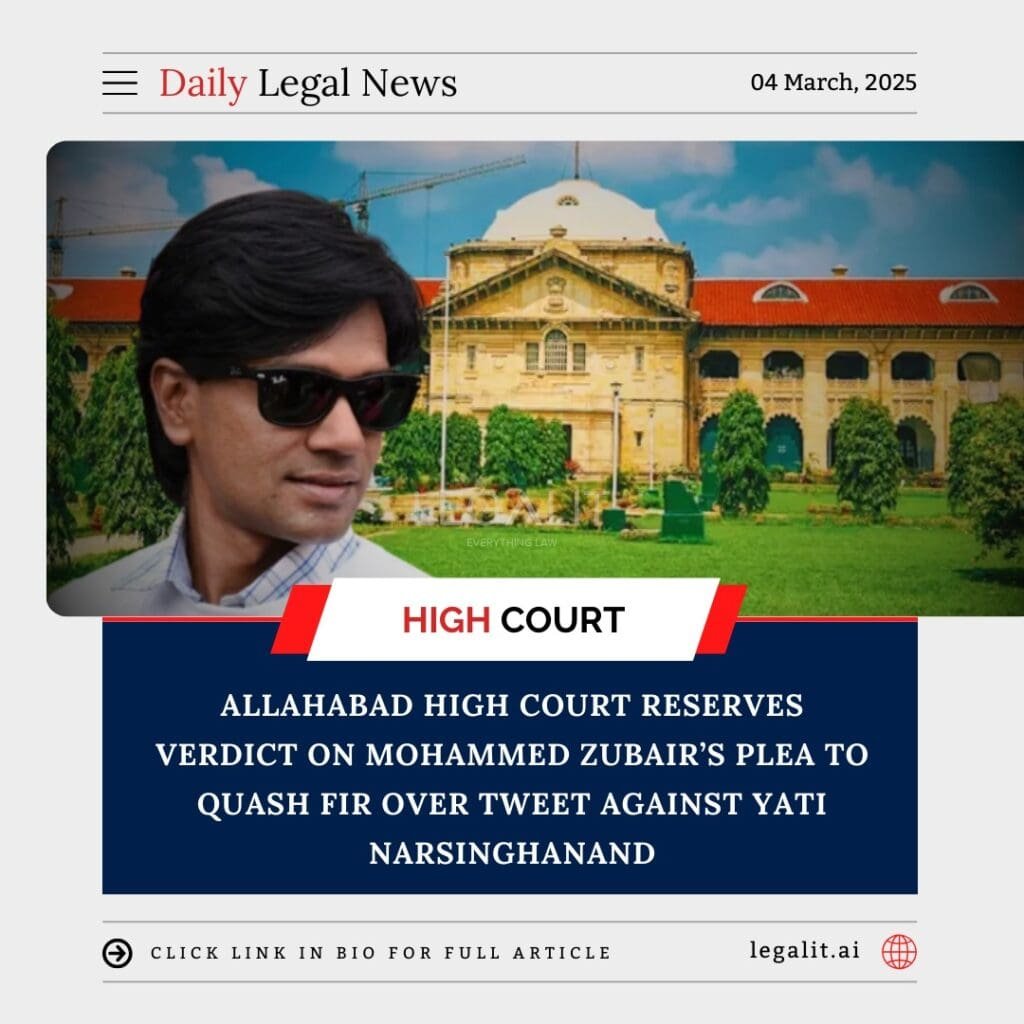
The Allahabad High Court has reserved its verdict on a plea filed by journalist Mohammed Zubair, co-founder of fact-checking website Alt News, seeking the quashing of an FIR registered against him for a tweet related to controversial religious leader Yati Narsinghanand. The case originates from a social media post in which Zubair allegedly made remarks that led to accusations of promoting enmity between religious groups and hurting sentiments.
The FIR was lodged under provisions of the Indian Penal Code (IPC), including sections related to promoting communal disharmony and malicious intent to outrage religious feelings. Zubair has argued that the case against him is politically motivated and that his tweet was a factual statement rather than an attempt to incite hatred.
Court’s Rationale
During the proceedings, Zubair’s counsel contended that:
- The tweet in question did not incite violence or promote enmity between groups, as required under Section 153A IPC.
- Freedom of speech, as protected under Article 19(1)(a) of the Constitution, allows individuals to express opinions, even on sensitive matters, as long as they do not lead to immediate public disorder.
- The FIR is an abuse of legal provisions and an attempt to silence critical voices in the media.
On the other hand, the prosecution argued that the tweet was provocative and could have led to communal discord. The state contended that social media has a wide reach, and even a single post has the potential to disturb public order.
Existing Measures
India’s legal framework balances freedom of speech with restrictions to prevent communal violence. Courts have repeatedly held that criticism and satire, unless inciting violence, should be protected under free speech rights. Additionally, in previous rulings, courts have stressed that social media posts should be assessed in context rather than in isolation to determine whether they truly pose a threat to public peace.
Conclusion
With the Allahabad High Court reserving its judgment, the case now awaits a crucial decision that could set a precedent for the treatment of social media posts under criminal law. The ruling will be significant in determining the extent to which legal provisions on communal harmony apply to digital speech, especially in cases involving journalists and public figures. If the FIR is quashed, it could reaffirm the judiciary’s commitment to protecting free speech; if not, it may signal stricter scrutiny of social media content under Indian law.